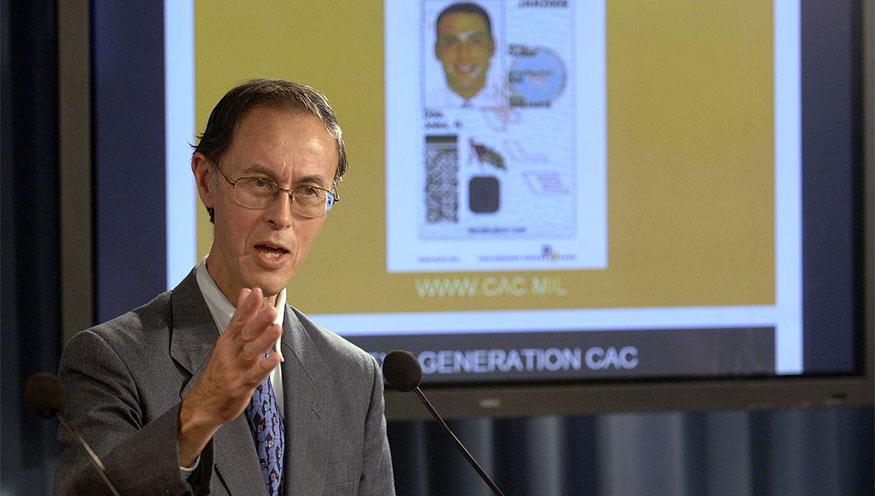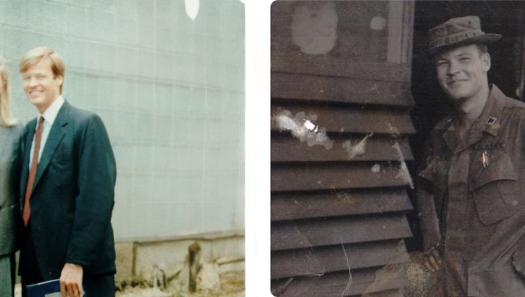Military & Veterans News
Vet News: Emergency Measures, Not Desperate Attempts, Fill Troop Rotations
Sgt. 1st Class Doug Sample, USA American Forces Press Service

WASHINGTON, July 7, 2004 -- Pentagon leaders face tough questions on Capitol Hill on issues of deployment and force structure as the military gears up for another round of troop rotations in Iraq and Afghanistan.
The next major rotation of troops signals the third of U.S. forces into Iraq, the sixth for Afghanistan.
House Armed Services Committee members questioned whether measures by the Pentagon to call up 5,600 Individual Ready Reserve members to active duty and whether the pullout of thousands of troops from South Korea by the Pentagon for missions in Iraq and Afghanistan indicated a manpower crisis in the military.
David S. C. Chu, undersecretary of defense for personnel and readiness, said the measures were not a last resort. Instead, he said, they are efforts by Secretary of Defense Donald Rumsfeld and Joint Chiefs Chairman Air Force Gen. Richard Myers to ensure the "burden of service in Iraq and Afghanistan is shared equitably."
Chu said guidelines set forth by the Defense Department are designed to allow each unit an "approximate equal period of time back home or out of the theater." Those guidelines ensure equity in "the burden of these deployments so that we do not over concentrate the load on any particular unit."
On the rotation of troops from Korea, Chu noted that improvements in South Korea’s military forces have reduced the need for American ground forces to be stationed there permanently in peacetime.
"This is an opportunity to have that brigade serve in Iraq as currently planned," Chu said.
He said the call-up of IRR soldiers, though rare, is not "inappropriate," emphasizing that the use of IRR soldiers has historically been limited in scope. Still, he added, that call-up of the IRR was needed because it allows the Defense Department to "fill holes quickly" with trained people in the appropriate skills.
Chu also addressed the question of why Marines typically serve a seven- month tour of duty, opposed the Army’s 12-month rotations. He said this was a decision made by Rumsfeld, given the length of initial obligation by Marine Corps recruits.
"Their service obligation allows us to realize more than one rotation during a first term of service," Chu noted. He added that Marine command elements and headquarters units will deploy on 12-month rotations.
Lt. General Jan C. Huly, deputy commandant of the Marine Corps for plans, policies and operations, said the rotation policy is the "best course" for the Marine Corps to train, organize and deploy combat forces.
Huly said that the Marines are deploying and operating overseas at much higher tempos than at any time in recent memory. He said almost one out of every three Marines is now forward-deployed, stationed or based worldwide.
Also at issue was the continued reliance on National Guard and Reserve units that make up 46 percent of the force going into Iraq. One committee member called this "taxing citizen soldiers to the breaking point."
That concern led to questions on whether the military had a ‘surge capacity’ should another contingency operation requiring substantial forces arise.
Gen. Richard A. Cody, the Army’s vice chief of staff, admitted that the military is "stretched thin" with reserve and active components having recently completed the largest troop movement since World War II.
"You can’t move eight and a half divisions and 240,000 thousand forces without stressing the force," he said. However, he added, the military is working rapidly to rebuild its surge capacity.
Asked by if he could use 10,000 more Army troops per year over the next three years, Cody replied, "Yes, Sir."
As for when U.S. forces will be out of Iraq, Air Force Lt. Gen. Norton A. Schwartz, director of operations for the Joint Staff, told the committee that move will take place incrementally and whenever possible, but that it will take years. He said the bottom line "will be in locations around Iraq where transitions can occur and the Iraqi security forces can be successful."
Schwartz said some transitions will take place in the very near term. For example, in northern Iraq, U.S. officials anticipate only Iraqis will do patrols. But he said that if Afghanistan is any indication, "it will be several years" before all troops are out of Iraq.
Meanwhile, the pace of military operations and the length of deployments have not hurt military recruiting and retention goals, Chu pointed out to the committee.
He said that each military service in the period through May met their active-duty recruiting goals, "and met them handsomely."
In addition, he said, the military continues to recruit well above its target in term of high school graduates, which has resulted in higher aptitude-test results.
Chu also noted that retention is likewise going well within the services, though the Army did not quite make its quarterly goal. But, he added, the Army is "quite confident in its ability to do so by the end of the year."


